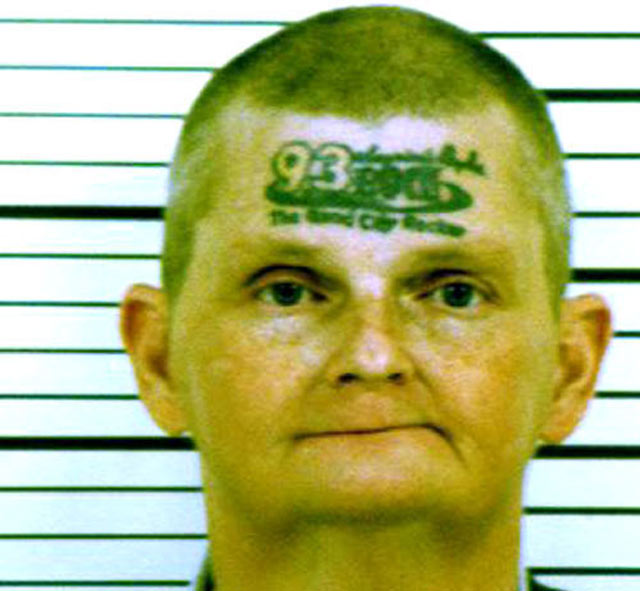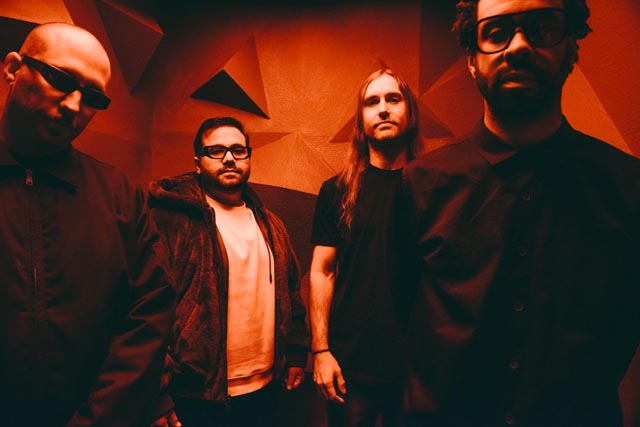 Last month, Philadelphia rock radio institution WYSP signed off for the last time, flipping to a simulcast of AM sports station WIP. And while it was still a commercial rock station, their metal show, Rockers, helped foster Philly’s reputation as a metal town. Countless guests had stopped by the show, and Job For A Cowboy even featured the station in their video for “Unfurling a Darkened Gospel.” Onetime Rockers host “Spike” Eskin had been at the station for years, most recently serving as Assistant Program Director and Music Director while hosting middays. The end of another rock station, this one in a top ten market, is indicative of the times. While radio has long been a means of discovery for new music, the consolidation of radio companies and other ways to find music (satellite, Internet, smart phones, etc.) have made it harder for terrestrial stations to survive. We gave Eskin a chance to talk about the end of the station.
Last month, Philadelphia rock radio institution WYSP signed off for the last time, flipping to a simulcast of AM sports station WIP. And while it was still a commercial rock station, their metal show, Rockers, helped foster Philly’s reputation as a metal town. Countless guests had stopped by the show, and Job For A Cowboy even featured the station in their video for “Unfurling a Darkened Gospel.” Onetime Rockers host “Spike” Eskin had been at the station for years, most recently serving as Assistant Program Director and Music Director while hosting middays. The end of another rock station, this one in a top ten market, is indicative of the times. While radio has long been a means of discovery for new music, the consolidation of radio companies and other ways to find music (satellite, Internet, smart phones, etc.) have made it harder for terrestrial stations to survive. We gave Eskin a chance to talk about the end of the station.
I remember the moment I realized that music radio wasn’t exactly what I thought it was. I was on the phone with John Lenac, and I had just been on the phone with Dave Downey. At the time, those guys worked for trade magazines. I’m pretty sure Lenac was at HITS and Downey was at All Access (sorry guys if I’m wrong about either). Up until this time, I thought trades were the coolest things in the world. I mean, all of these guys just writing and talking about new songs that may or may not end up on the radio. When I was in college at Syracuse, I read these things like they were the bible. You know how the sports section is for sports fans? That’s what trades were like for me.
So here I was, a 25 or 26 year old Music Director at the mighty 94WYSP, and I got to talk to these guys every single week. These two guys were always fun to talk to. Here we were, just talking about radio and new rock songs. This is my job. Something struck me about the way Lenac was asking me about the songs though. Like he had to ask me. Or not so much like he had to ask me, but he wanted me to like some of them. It seemed like an unusually long discussion about a song that I didn’t think was any good.
That was always kind of my thing with these guys, or record labels, or anyone. If I loved something, I was totally honest. If I thought it sucked, I was totally honest. Some people always appreciated the fact that I was honest, even if it meant a lot of the time I thought their songs sucked. When I really believed in something, I wouldn’t stop until I made it happen. So anyway, it was at that point that I realized what Lenac was doing, and what the trades REALLY were. It was like that moment in The Truman Show when Jim Carrey puts all the pieces together and realizes the world is fake.
Trades weren’t really magazines about the music. No, not at all. Those things that looked like articles were just advertisements for the songs. It took me six years to realize I’d never read one article about a song not being any good. And these guys, these two really good guys (and to this day, still really excellent guys) who I enjoyed talking to, were being paid to get my opinion on songs, and maybe even try to convince me to play them. It was like my parents paying other kids to be my friends.
“WHAT IS GOING ON HERE?!”
It was this fork in the road that I hit, when I realized I could take one of three paths. I could become like every other programmer, and bullshit everyone I talked to. I could just bail when I realized the radio world wasn’t what I thought it was. Or, I could do what I ended up doing, and try to blow up the death star the only way anyone could, from the inside. I realized that even though music radio wasn’t exactly what I thought it was, I could still do some things I wanted to, I could reach more people with my personal message and the songs I thought were great from inside the machine rather than outside of it.
And I did it. I didn’t do as much as I would have liked, but I did all that was possible. When I thought something sucked, like The Darkness, let’s say (sorry Danny Buch), I used every bit of my effort to make sure I wasn’t responsible for playing that song. When I thought something was awesome, like Slipknot or local band Octane or Jack’s Mannequin and Hanson in Chicago, I found tooth and nail to make sure the world knew about it. 94WYSP gave me the chance to live out my dream of sharing music, and talking about life. Every song I’ve ever loved reminds me of a time and a place. I got to help people make those memories, and share my own. It’s as close to magic as I can imagine.
As the years went on, it became harder and harder to do what I wanted to do in music radio. I understand why it happened, and I don’t think anyone is to blame, it just kind of “is.” Big, corporate, music radio just wasn’t what it used to be. So as I mourn the loss of 94WYSP as a radio station and as a name, as part of my history, I realize that 94WYSP disappeared at the right time. WYSP was always about being a little edgier, a little tougher, and had a little more fight than everyone else. So when radio became a place where being edgy, having fight, and being tough was no longer important, then WYSP became less important.
Imagine a party. There’s usually one point in the party where it’s at its peak. There’s the right amount of people there, and they’re the right people. The music is just right. It’s just noisy enough and you’re just drunk enough. Then a bunch of assholes show up, turn the music up too loud, make it too crowded, and ruin the party. Rock radio is that party, and WYSP left the minute the assholes showed up.











